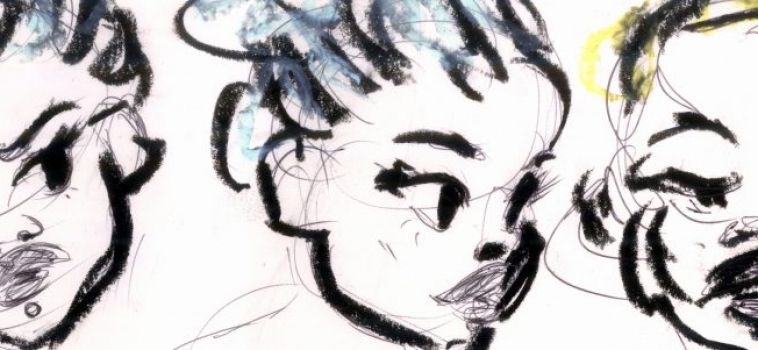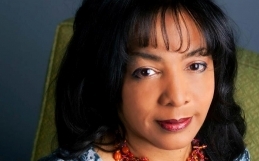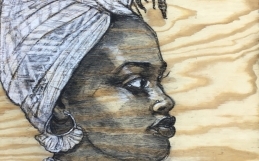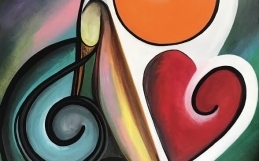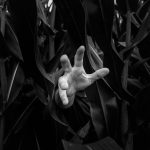Introspective Self Love
By Hailey Stangebye
Photos courtesy of Annie Chrissy Burley
Annie Chrissy Burley is on a journey of self love.
But she’s not alone. She has a community of supporters, and she’s a supporter of her community. Annie aims to help black women — herself included — find the representation that they need.
Her battleground is the current media environment.
“When you look at stuff on television, on social media, on the Internet and stuff like that, it tells you to degrade black women,” Annie says. “How do I look at myself and appreciate myself no matter what? And how do I love others, too? What does that look like?”
“When you look at stuff on television, on social media, on the Internet and stuff like that, it tells you to degrade black women. How do I look at myself and appreciate myself no matter what? And how do I love others, too? What does that look like?”
To create that love, Annie uses art. Throughout her life, art has been a constant source of refuge. Art is where she feels most comfortable, even when the outside world is hostile.
And Annie is no stranger to hurtful environments.

“I don’t cherish those times when I was little because I was dealing with a lot of bullying,” Annie says. “When you’re bullied, you feel like you have no purpose — like your voice has no purpose. When I grew up, I think that was the thing that made me the most upset: When I felt silenced.”
“When you’re bullied, you feel like you have no purpose — like your voice has no purpose. When I grew up, I think that was the thing that made me the most upset: When I felt silenced.“
When Annie felt silent or as though she didn’t fit in, she turned to art.
“I didn’t have anything else to turn to because it was the only thing in my life where I knew I had a weird, consistent talent,” Annie says. “In my work ethic, everything else was a hobby; school was a hobby, but art was not, for some reason.”
As she continues to become more self-aware and aware of her environment, Annie questions how the media can make people feel out of place.
That’s the impetus behind one of her latest creations: A mural called “Anime Omission (Composite)” in the Short North arts district. With this piece, Annie illustrates a trope of some of the African American women who look at popular media and ask, “Why don’t I see myself reflected in any of these characters?”
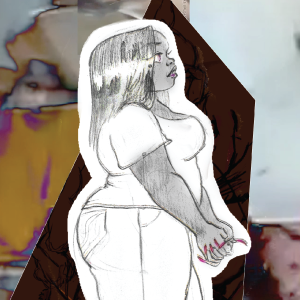
Annie re-created a common form of representation of the “Big Black Woman” that she weaponizes against popular media. The figure is named Anyia, and her characteristics are based off of a character called Ayanami Rei, who is from the series “Neon Genesis Evangelion.” The artist sees Ayanami Rei as a cultural opposite compared to the common representation of a character that looks like Anyia.
“The media has taken the ‘Big Black Woman’ character and made her into a joke. Like a real black woman’s existence is a joke,” Annie says.
To combat that hurtful stereotype, Annie drew her figure as a “Big Black Woman” full of grace, stoicism and self-awareness. In doing so, she shows that the “Big Black Woman” is not a two-dimensional, fixed archetype. The whole picture is much more nuanced.
“My work is about black, female representation,” Annie says. “With animation, you can have someone connect with an image, connect with a being that’s not real. You can make someone feel something with the power of what you create. It’s a responsibility.”
“With animation, you can have someone connect with an image, connect with a being that’s not real. You can make someone feel something with the power of what you create. It’s a responsibility.“
